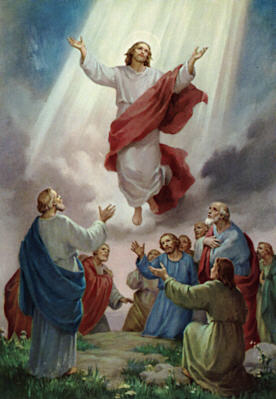S E A R C H
Click here to SEARCH our entire site (Custom Google Search)
New search window will open.
Bob Stanley’s “The Catholic Treasure Chest” (PDF)
Down To Earth Answers To Virtually All Your Heavenly Questions.
English – On the Web
Spanish – On the Web
You can also access the site directly, by typing
www.catholictreasurechest.com
into the address bar on your web browser.
How the Holy Bible defines and explains
The Blessed Virgin Mary’s powerful role as the Mother of God
How To Pray the holy Rosary (PDF)
Which Mysteries to pray on what day – “Handy Cheat Sheet” (PDF)
The Rosary and the Scapular are inseparable
Complete Information On The Brown Scapular
Including The Procedure for Priestly Blessing and Investiture – Latin and English
Overcoming the World, the Flesh and the Devil,
In and Through Our Lord Jesus Christ (PDF)
A beautifully illustrated “advanced course” on Christianity that provides
critical insights into what Christians believe, how they practice, and why.
Special emphasis on The Mystery of Our Redemption and The Church.
The “Peculiar” Theology of Our Redemption in Jesus Christ (PDF)
Complete course. How the death of Christ at the hands of man
served to destroy Satan’s power and reconcile sinful mankind with God.
Fully illustrated.
Why Be Catholic?
The fact that Jesus Christ took on flesh, lived a human existence, communicated and confirmed certain divine truths, died, subsequently rose again (and while he still walked the earth) founded the Catholic Church, provides Catholic Christianity with a unique status, as the ONLY constant, living, eye-witness to divine truth and the ONLY CHURCH that Jesus Christ EVER authorized, empowered and eternally guaranteed, for the purpose of our salvation. (MORE)
Download This Article For Free (PDF)
Download A Free (PDF) Copy
of the Catechism of the Catholic Church
A Comprehensive Study of The Sacraments
by Archbishop Fulton J. Sheen
The word “sacrament” in Greek means “mystery,” and Christ has been called by St. Paul “the mystery hidden from the ages.” In Him is something divine, something human; something eternal, something temporal; something invisible, something visible.
The mystery of Bethlehem was the Son of God taking upon Himself a human nature to unite human nature and divine nature in one Person.
He Who, in the language of Scripture, could stop the turning about of the Arcturus, had the prophecy of His birthplace determined, however unconsciously, by a Caesar ordering an imperial census.
He Who clothed the fields with grass, Himself was clothed with swaddling bands.
He from Whose hands came planets and worlds had tiny arms that were not quite long enough to touch the huge heads of the cattle.
He Who trod the everlasting hills was too weak to walk…
These are the Sacraments – Archbishop Fulton J. Sheen – PDF
88 pages – Free Download
APOSTOLIC EXHORTATION
CATECHESI TRADENDAE
OF POPE
JOHN PAUL II
ON CATECHESIS IN OUR TIME
Link to Vatican Document
July 25, 2022
Categories: Books & Publications . Tags: apologetics, bible, catholic, Catholic-Church, church, commentary, courses, death, devil, dictionary, eucharist, faith, god, heaven, hell, holy communion, jesus, Knights of Columbus, life, mass, mystery, passion, sacraments, studies, truth . Author: Hosted by Doug Lawrence . Comments: Leave a comment



















-WELCOME TO THE CATHOLIC STUDIES COLLECTION-
S E A R C H
Click here to SEARCH our entire site (Custom Google Search)
New search window will open.
Bob Stanley’s “The Catholic Treasure Chest” (PDF)
Down To Earth Answers To Virtually All Your Heavenly Questions.
English – On the Web
Spanish – On the Web
You can also access the site directly, by typing
www.catholictreasurechest.com
into the address bar on your web browser.
How the Holy Bible defines and explains
The Blessed Virgin Mary’s powerful role as the Mother of God
How To Pray the holy Rosary (PDF)
Which Mysteries to pray on what day – “Handy Cheat Sheet” (PDF)
The Rosary and the Scapular are inseparable
Complete Information On The Brown Scapular
Including The Procedure for Priestly Blessing and Investiture – Latin and English
Overcoming the World, the Flesh and the Devil,
In and Through Our Lord Jesus Christ (PDF)
A beautifully illustrated “advanced course” on Christianity that provides
critical insights into what Christians believe, how they practice, and why.
Special emphasis on The Mystery of Our Redemption and The Church.
The “Peculiar” Theology of Our Redemption in Jesus Christ (PDF)
Complete course. How the death of Christ at the hands of man
served to destroy Satan’s power and reconcile sinful mankind with God.
Fully illustrated.
Why Be Catholic?
The fact that Jesus Christ took on flesh, lived a human existence, communicated and confirmed certain divine truths, died, subsequently rose again (and while he still walked the earth) founded the Catholic Church, provides Catholic Christianity with a unique status, as the ONLY constant, living, eye-witness to divine truth and the ONLY CHURCH that Jesus Christ EVER authorized, empowered and eternally guaranteed, for the purpose of our salvation. (MORE)
Download This Article For Free (PDF)
Download A Free (PDF) Copy
of the Catechism of the Catholic Church
A Comprehensive Study of The Sacraments
by Archbishop Fulton J. Sheen
The word “sacrament” in Greek means “mystery,” and Christ has been called by St. Paul “the mystery hidden from the ages.” In Him is something divine, something human; something eternal, something temporal; something invisible, something visible.
The mystery of Bethlehem was the Son of God taking upon Himself a human nature to unite human nature and divine nature in one Person.
He Who, in the language of Scripture, could stop the turning about of the Arcturus, had the prophecy of His birthplace determined, however unconsciously, by a Caesar ordering an imperial census.
He Who clothed the fields with grass, Himself was clothed with swaddling bands.
He from Whose hands came planets and worlds had tiny arms that were not quite long enough to touch the huge heads of the cattle.
He Who trod the everlasting hills was too weak to walk…
These are the Sacraments – Archbishop Fulton J. Sheen – PDF
88 pages – Free Download
APOSTOLIC EXHORTATION
CATECHESI TRADENDAE
OF POPE
JOHN PAUL II
ON CATECHESIS IN OUR TIME
Link to Vatican Document
July 25, 2022
Categories: Books & Publications . Tags: apologetics, bible, catholic, Catholic-Church, church, commentary, courses, death, devil, dictionary, eucharist, faith, god, heaven, hell, holy communion, jesus, Knights of Columbus, life, mass, mystery, passion, sacraments, studies, truth . Author: Hosted by Doug Lawrence . Comments: Leave a comment